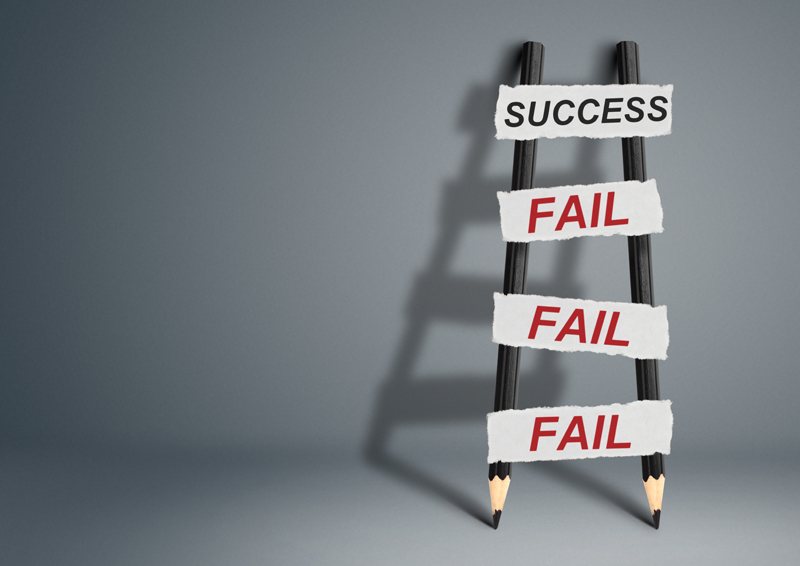
Skills Law Firm Litigators Need To Succeed

Many litigators quickly realize that the practice area is not what they expected. They go into the area wanting to argue in courts and earn high salaries but the truth lies somewhere else. Most litigation matters are settled out of court which means that litigation attorneys sometimes do not even have court experience and their day-to-day duties involve mostly discovery and writing up motions.
Most litigation jobs are miles away from the notion of prestigious litigation attorneys working on high-profile cases every day. Regular litigators earn less than most people in managerial positions because they cannot have high hourly rates as attorneys dealing with individual clients. While there are definitely some good positions with higher salaries, most attorneys in this practice area work in bad litigation jobs earning less than they expected, and they are not happy, successful, or content with their position.
Even extremely talented and skilled litigators often have difficulties finding success in their job. They are always scared of losing their positions because there are just so many litigation attorneys law firms can choose from that even the smallest mistakes can cost them their jobs.
Moreover, the skillset a good litigator has to have is quite shocking. Most attorneys understand that lawyers in litigation have to have impeccable verbal abilities to persuade everyone in the court that what they are saying is right. However, as I already mentioned, most of the job is done behind computer writing motions, so verbal skills mean nothing if the attorney is not an excellent writer. Another important aspect of litigation is people skills. A good litigator knows how to speak to potential clients and how to turn them into existing ones. However, clients mean nothing if the attorney is not able to get them to actually pay for the bills. Skilled litigation attorneys are not intimidated by others and know how to get them to do what they want.
Being a great attorney in the litigation practice area is not easy and the reward for it is not worth it for most litigators. Those who are able to succeed in a litigation legal career do reap the rewards of the best lawyers in major law firms; however, there are much better practice areas in which attorneys can succeed with less effort and with a higher probability. In this practice area, usually, only attorneys working on huge class actions, major personal injury cases, or intellectual property litigation for big companies have some sort of higher financial gain. Others live with a basic pay you could earn in a plethora of different industries that are not as demanding on the skills they require.
Even if you possess all the skills needed in litigation, it is not easy being in this practice area and there are still many reasons why you would be better off choosing something else to do.
Everyone Is in Litigation

Litigation is the most popular practice area among law students and recent graduates of law schools. Almost everyone starting to provide legal services goes into litigation, probably because the traditional law school curriculum really instills common litigation skills, like writing or mock trial, into the students. There is just an endless supply of litigators everywhere.
Because of this, it can be very difficult to stand out and pique the interest of law firms and employers. With so many litigators to choose from, law firms, as well as clients, can set their standards for choosing a litigation lawyer extremely high. The required qualifications are often extremely specific and discriminate against most candidates right from the start. If you do not have the best qualifications, it is extremely difficult to get huge clients or get hired by prestigious law firms.
If an attorney has very specific niche litigation experience, they might be able to get a good law firm position even without top-notch credentials. In most cases, however, only the best of the best stand a chance with all the competition around. If you are not an attorney with the best pedigrees and are not extremely intelligent, it will be very hard to stand out in the sea of wonderful litigators. Intelligence is especially valued in commercial litigation where attorneys have to quickly grasp complex issues and laws to be able to explain them plainly to their clients.
Many Deadline = Easy To Make Mistakes

Although there are deadlines in all practice areas, there are significantly more deadlines in litigation. Litigators have to file motions and attend hearings all around the country all the time, and they have to keep these dates in their heads and meet every deadline. Everything also needs to be handed in in the highest quality, which can be challenging when the attorney has several deadlines every day.
It is very common for attorneys to get fired because of a missed deadline and with so many opportunities to make a mistake, the everyday reality of litigators is extremely stressful. This constant anxiety and stress does not reflect well on attorneys' well-being and eventually even their work. Many litigation attorneys work themselves to various health problems with the constant stress about meeting deadlines and even young lawyers often feel old and high strung.
Litigators Have Too Many People Overseeing Them and Waiting for Them To Fail

Attorneys in most practice areas have only one or two superiors that oversee them, to who they report, and who are waiting for any small mistake. This is very different for litigation attorneys. Apart from the litigator's direct superior in the law firm, they are also watched by the managers of the law firm, co-counsel, judges, opposing counsels, and their own clients. And this is the reality for every case they work on. So, if the attorney currently has 20 cases under 20 different senior attorneys in their firm, the number of people who are waiting for the attorney to screw up grows exponentially.
Litigators are under extreme scrutiny at all times, which only adds to the stress and anxiety they are experiencing daily. Unfortunately, this often results in health, family, or substance abuse problems which is not a surprise to anyone.
Litigators Who Are Not Good Writers and Researchers Cannot Succeed

As already mentioned at the beginning of the article, writing and researching are essential skills for litigation. The most prestigious law firms employ the best writers and researchers who are able to find the tiniest details and exceptions and will find even any mistakes in the arguments of the opposing side. Writing (and writing clearly and understandably) is the core of this practice area, and if the attorney is not among the best in this, finding a great litigation job is not really on the table.
Those litigators who are not as skilled in writing still can find employment; however, it is usually in personal injury specialization or something similar. Cases in this legal practice are generally pretty straightforward and based on facts about the injury that cannot be changed, so the writing does not have to be on such a high level and so persuasive. However, there is usually not as much money in these practice area specializations. The best lawyers committed to litigation who want to represent clients on the highest level need to be excellent writers and researchers. They need to enjoy and thrive when they can find small details through their research or twist the arguments of the opposing counsel. Most of the work is done through writing, so great litigation attorneys need to be excellent writers and love the work.
It Is Difficult To Build a Huge Book of Business and Have Stability as a Litigator

It is extremely difficult to build a stable book of business as a litigator and law firms generally do not even require the litigators they hire to bring in a lot of business. Litigation attorneys are generally hired by clients for one specific litigation matter and after that, it is done. If the client finds themselves in need of a litigator again, they may come to the same attorney if they were satisfied with the result of the first case. However, if they did not like the result of the litigation or there was anything else they had issues with, they have hundreds of other litigators to choose from. Law firms are well-aware of this fact and know that when they hire a litigator based on the amount of their business, there is a good chance that a significant portion of these clients will leave very soon.
Lawyers practicing in real estate, transactional, criminal law, or corporate law have a much easier time building their books of business as they can represent their clients in various legal matters that are often ongoing. They can build great professional relationships with their clients as their cooperation is long-term, which is not the case for litigators. In fact, many litigation clients in law firms come from transactional lawyers because they find out about their clients' litigation issues thanks to their good relationship and can then refer this work to litigators in their firm.
The big book of business is usually a great way how to secure employment stability. Litigators do not have this advantage. They are always afraid of losing their jobs and do not really have an opportunity to change this. Of course, there are some high-profile litigators who are able to secure big litigation cases and clients all the time thanks to their reputation. However, this is more of an exception than a rule and most litigators do not experience this.
It Is Difficult To Transition to In-House Roles

Litigation and the skills and experience gained through litigation are very law-firm-centric. Apart from a few positions in insurance companies, there are really not many practice settings where attorneys can use their litigation experience. Attorneys from other practice areas, such as employment law, corporate law, or real estate law, can easily find great in-house positions when they get fed up with the constant race in law firms. Litigators cannot, so if they do not want to work in a firm anymore, they usually do not have another choice but to leave the legal practice completely.
Litigation Requires a Lot of Energy and the Need To Win
Litigators need to have extreme amounts of energy in them and they need to want to win more than others. Every client will choose someone who seems like they will not sleep for a month just to win the case for them, so if a litigator does not have endless reserves of energy, they have a problem.
The thing is, no one really has that much energy. Some litigators endure this longer than others, but eventually, everyone gets tired and is replaced by someone younger and with more drive. Litigators are always fighting with the opposing counsel and sometimes even their own clients fight with them or are unhappy with them, which is extremely tiring and can suck the energy out of anyone. It is not a surprise that many litigators start to treat their stress or compensate for their lack of energy with substances, like stimulants, antidepressants, or antianxiety pills. This can quickly get out of their hand and not only they do not have the drive and energy litigators need but they are also viewed as someone with a substance abuse problem, which can cost them their position.
High-Stakes Litigation Jobs Are Not Stable and Not Paying Well

Many litigators go into class action cases and other matters like lawsuits with huge corporations with the vision that they will be able to win and cash a fat check as a percentage of the settlement. While this is possible and happens sometimes, the reality is that the normal day-to-day pay in these positions is very low and no one has the certainty that they will actually win. This sort of work comes with a lot of risks which adds to the stress of attorneys as they never know if they will be able to win the money they desperately need. Even if they do, collecting the money is a task on its own, and not every attorney doing plaintiff-related litigation is able to do so.
Litigators Cannot Care About Their Image Among Others

Litigators make a lot of enemies when they go hard after what they want, which is to win. They do not want to make friends or gain respect, they just want to come out of the case on the winning side and are not afraid to play dirty to do so. They want others to feel intimidated by them.
If a litigator cares about what others think of them, they cannot be a good litigator because they will never do the things that are necessary to win. They will not want to use some information against the opposing side and they will easily get pushed into a corner by someone who is not afraid to make enemies.
Excellent Litigation Attorneys Have To Be Extremely Smart and Creative

The greatest litigators from the best law firms are smarter and more creative than others and can solve commercial disputes in a way that is not so obvious. They find creative solutions, see several steps ahead, and are able to understand complex concepts and issues without a lot of effort.
Although there is a huge debate about whether standardized tests are the best way to assess the knowledge and intelligence of students, great litigators are almost always those who have done best on tests like LSATs. They are able to grasp patterns and complex issues and come up with solutions others have trouble seeing. When a litigator who is not extremely intelligent fights against one that is really sharp, they really do not stand a chance. Excellent litigators can come up with arguments the other side would not see and they can do so very quickly because they are quick on their feet. An important part of this is also creativity because usually, the most intelligent solutions are not obvious at first sight.
Litigators Need To Be Able To Come Up With Work
Law firms are businesses like all others and need to generate money to exist. An essential part of generating money is billing hours as many hours as possible. Good litigators have the skill to find any potential work there is on a case and sell its necessity to the client. If they are able to persuade the client that this important memo or this time-consuming research is necessary, they can bring a lot more money to the firm.
Many attorneys feel bad about billing their clients more than absolutely necessary and feel like that is taking advantage of them. This stance, however, is not aligned with the goals of most firms, and many lawyers have lost their jobs because they took shortcuts and wanted to find the quickest solutions for their clients. Knowing how to explain that all additional work is necessary to clients is a skill every talented litigator has developed.
Litigation Is a Game Not Every Litigator Knows How To Play

The best litigators approach each case like a game they want to win. They enjoy being calculating, keeping their "cards" secret just to reveal them in the grand finale when they ruin their opponent, and finding cracks that would allow their client to have all the advantages there are. Every word they write or say is chosen with intention and is a part of their gameplay that will lead them to victory.
Some attorneys are just born with this in their DNA and the game comes to them naturally. Those who do not have this in them usually struggle to keep up because they just do not know how to trick others. And this is often seen even in their results - it is difficult to win a case when you are not playing the game right or at all.
Best Litigators Are Extremely Committed to Their Clients
A good litigator is always one that cares a little too much about their clients. They have to get fired up and emotional to fight for the people they represent. When they work with their clients, the case is all they can think about. Only if they take it very personally can they put their all into the case and live and breathe the case. If you put yourself into the shoes of the client, you would also choose the attorney who shows you that you are the most important person to them and they will not stop until they win for you.
The problem with this is that investing so much of yourself in your clients has to have some implications for your personal life. Many litigators put everything they have into their clients, so they do not have the energy and time to spend with people outside of their work.
Litigation Is About Fighting All the Time

Litigators fight a lot every day. They fight in the supreme court and state courts with the opposing counsel, with their clients, and even with other attorneys from their firm. To be good, they need to enjoy fighting because they cannot avoid it. People who do not like conflict or being in an adversarial environment have no business being in litigation because they just cannot succeed. An excellent litigator is energized by fighting with others and they never have enough of it.
Collecting Payment Is an Important Skill Litigators Need To Have
I already mentioned that great litigators need to find ways how to bill their clients as many hours as possible. The second part of billing hours or winning a verdict is actually collecting the money, without that, the billed hours are for nothing. Clients can figure out so many creative ways how to get out of paying, it is sometimes hard to believe. If a litigation attorney wants to actually earn money, they first need to be able to get it from their clients, which can be more difficult than one would think.
Conclusions
Litigation is an extremely difficult and demanding practice area where only a handful of attorneys can succeed and find happiness in. Still, there are more litigators than any other lawyers there are. Even if you are convinced that you possess all of the skills and qualities needed to become a great litigator, there are many reasons why it will be difficult to have a career you are happy in.



